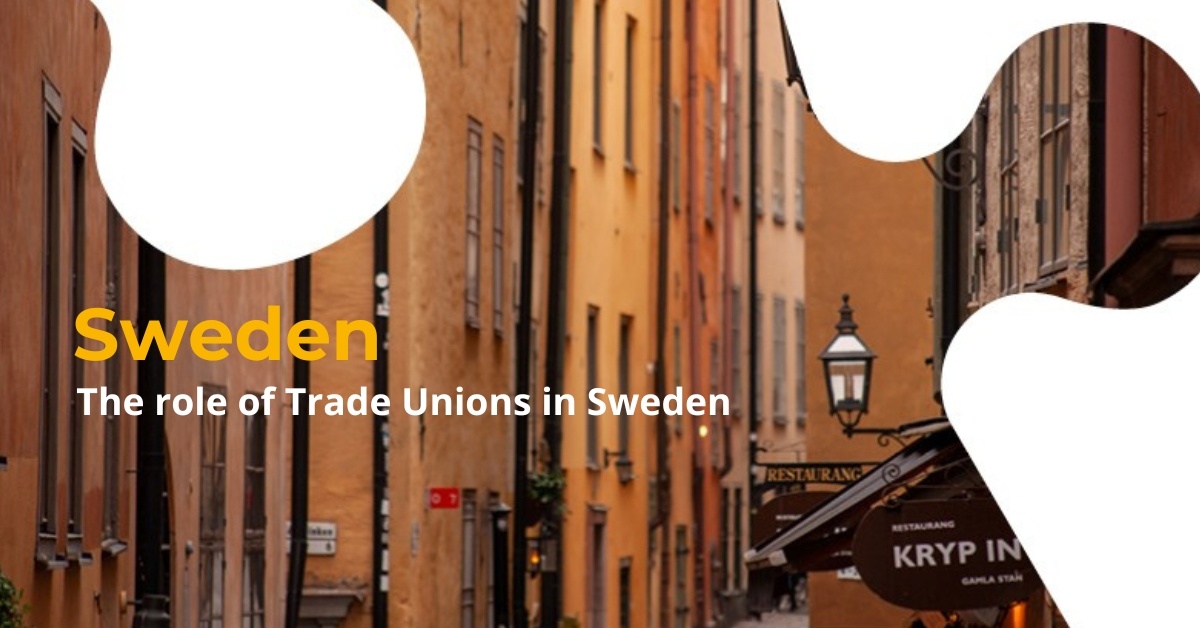What is the role of a trade union in Sweden?
Sweden is known for having a high rate of trade unions membership and a strong tradition of collective bargaining. The relationships between trade unions, employers, and the government are characterized by cooperation and consensus, known as the "Swedish model." This approach has contributed to a stable labour market and relatively low levels of industrial conflict.
Trade unions play a significant role in the Swedish labour market and in the welfare system. The main purpose of trade unions is to represent the interests of their members in relation to employers.
Here are some of the key roles trade unions play in Sweden:
-
Collective bargaining: One of the most important roles of trade unions in Sweden is negotiating collective agreements with employers or employers' organizations. These agreements set out the terms and conditions of employment, including wages, working hours, overtime pay, vacation time, and other working conditions.
-
Representation: Trade unions represent their members in discussions and negotiations with employers over issues such as pay, working conditions, and disciplinary matters. If a member has a problem at work, the trade union can provide advice and support and may represent the member in discussions with the employer or in a labour court.
-
Protection of workers' rights: Trade unions work to ensure that employers comply with labour laws and collective agreements. They can take employers to court if they believe that a member's rights have been violated.
-
Promotion of better working conditions: Trade unions play a key role in promoting and campaigning for better working conditions, health and safety at work, and improved rights for workers.
-
Political influence: Trade unions in Sweden have traditionally had strong links with the Social Democratic Party and have influenced policy on a wide range of issues affecting workers, from employment law to social welfare and education.
-
Education and Training: Trade unions in Sweden often provide educational opportunities and training for their members to improve their skills and employability.
The most common trade unions in Sweden
In Sweden, the structure of trade unions is organized around three main confederations, each representing different sectors of the workforce. These confederations are:
-
LO (Landsorganisationen i Sverige - The Swedish Trade Union Confederation): The LO is the largest of the three main confederations and primarily represents blue-collar workers. It comprises several member unions that cover a range of industries, including the Swedish Municipal Workers' Union (Kommunal), the Union for Service and Communications Employees (SEKO), and the Industrial and Metalworkers' Union (IF Metall), among others.
-
TCO (Tjänstemännens Centralorganisation - The Swedish Confederation of Professional Employees): The TCO represents white-collar workers in various services industries. Its member unions include Unionen (representing private sector workers), The Swedish Teachers' Union, and Vision (representing municipal sector employees), among others.
-
SACO (Sveriges Akademikers Centralorganisation - The Swedish Confederation of Professional Associations): SACO represents employees with a university degree, such as engineers, doctors, and lawyers. It is made up of a number of professional associations like the Swedish Medical Association, the Swedish Association of Graduate Engineers, and the Swedish Association of University Teachers and Researchers, among others.
These confederations and their associated unions represent a large majority of the Swedish workforce. They play an important role in collective bargaining and labour relations within their respective sectors.
Trade Unions, in Sweden, as in most countries, it's not companies that join trade unions but employees. However, companies typically join employers' organizations, which serve a similar function for businesses as trade unions do for workers.
Employers' organizations negotiate with trade unions on behalf of member companies to establish collective agreements that define the terms and conditions of employment, such as wages, hours of work, and vacation time.
Here are a few reasons why a company might want to join an employers' organization in Sweden:
-
Collective Bargaining Power: Being part of an employers' organization provides companies with more bargaining power in negotiations with trade unions. The organization can negotiate collective agreements on behalf of its members, often resulting in better terms than a single employer might be able to achieve.
-
Legal Support and Advice: Employers' organizations typically provide legal advice and support to their members, especially concerning labour laws and regulations. This can be particularly helpful for smaller companies that may not have in-house legal expertise.
-
Representation: Employers' organizations represent their members' interests at various levels, including local, regional, national, and even international. They can influence policies and regulations that affect businesses.
-
Networking and Business Opportunities: Membership in an employer's organization can provide opportunities for networking and business development. It can offer chances to meet with other business owners, share experiences, and learn from each other.
-
Training and Education: Some employers' organizations provide training and educational resources for their members. This could include seminars on labour law, management techniques, and other relevant topics.
In Sweden, some of the key employers' organizations include the Confederation of Swedish Enterprise (Svenskt Näringsliv), which represents businesses from various sectors, and Almega, the employers' organization for the service sector.

-1.png)
